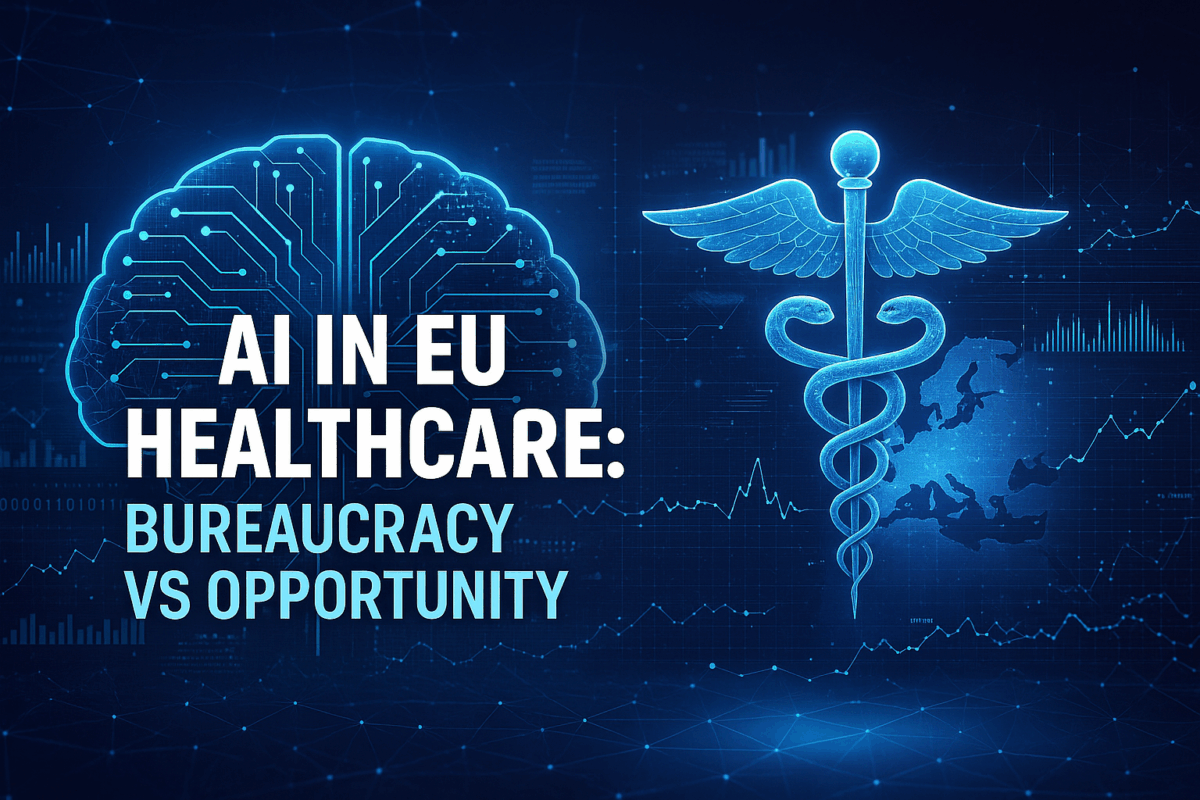The European Commission’s latest 150-page analysis of artificial intelligence deployment in healthcare across the EU isn’t light reading. But it should be mandatory for anyone building or backing AI-driven MedTech. Because while the headlines scream about generative AI revolutionising medicine, the report paints a far less dramatic, but more commercially useful, picture.
This is a story of uneven adoption, promising use cases strangled by red tape, and the growing chasm between regulatory intention and real-world execution. In other words, typical European healthcare.
The Few Use Cases That Work
Despite the hype, only a narrow set of AI applications are actually scaling:
- Imaging and diagnostics continue to lead, especially in radiology, pathology, and dermatology. This is due to data abundance and well-defined clinical tasks.
- Operational AI is quietly making a difference in logistics and scheduling, especially tools that improve patient flow or reduce no-shows.
- Administrative automation using LLMs and NLP is gaining traction, particularly digital scribes and documentation tools.
In all cases, the successful deployments are narrow, specific, and integrated into existing workflows. General-purpose AI or standalone platforms are still a fantasy.
Why Adoption is Stalling
The study outlines 26 distinct barriers. Let’s group the key ones:
1. Data fragmentation and access
Hospitals operate with siloed systems and non-standardised formats. Even when data is available, trust, consent, and governance issues make it unusable.
2. Overlapping regulation
MedTech startups must navigate the AI Act, GDPR, MDR, IVDR, HTA rules, and soon the EHDS. Each imposes its own requirements for transparency, explainability, evidence, and liability.
3. Procurement paralysis
Hospitals rarely procure standalone AI tools. They prefer solutions bundled with existing systems or validated by public-private pilots. That means startups must either integrate into incumbent platforms or navigate years-long public tenders.
4. Lack of robust evidence
Most AI tools lack RCTs or real-world data at scale. This stalls reimbursement and formal adoption. And since HTA bodies treat algorithms like drugs, the evidentiary bar is high and expensive.
5. Cultural resistance
Doctors are wary of black-box tools. Patients aren’t convinced about machine-made diagnoses. And hospital administrators need guarantees, not hype.
Strategic Insights for EU Founders
If you’re a MedTech founder in Europe, here’s what to take away:
- Build for integration: Design your AI to plug into Cerner, Epic, or national EHR systems. Standalone platforms won’t survive.
- Focus on unsexy wins: AI that reduces admin, improves scheduling, or boosts documentation accuracy is easier to validate and adopt.
- Use hospitals as research partners: Academic centres want to publish. Co-develop your real-world evidence with them.
- Service, not software: Hospitals want solutions, not licenses. Offer managed services, not just tools.
- Treat CE mark as step one: It’s not product-market fit. It’s the starting point for evidence and integration.
What Investors Should Look For
Smart capital should prioritise teams who understand Europe’s slow path to adoption. Key signals include:
- Integration-ready architectures
- HTA or payer engagement early on
- Built-in data governance and local validation
- Evidence generation baked into the roadmap
If a startup claims AI disruption without regulatory or clinical depth, pass.
A Final Word
AI in EU healthcare is not a gold rush. It’s a policy-anchored trench war. But for the few who master the terrain, the rewards are durable. Think less blitzscaling, more systems change.
Just don’t call it a revolution. In Europe, it’s called compliance.

